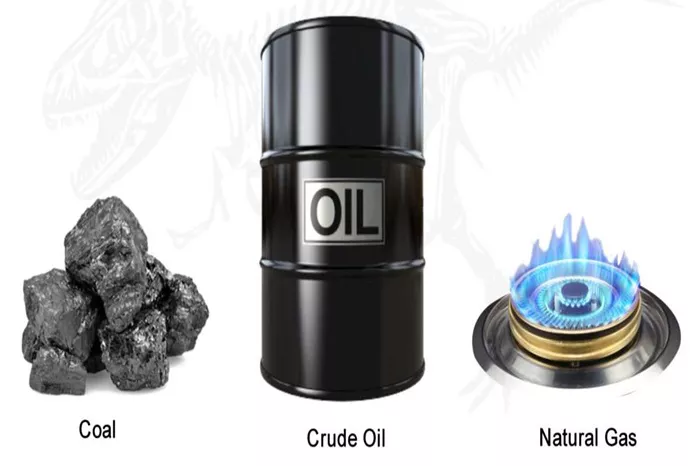Natural gas and traditional fossil fuels have been the bedrock of global energy supply for centuries. As the world moves toward a sustainable future, the debate around which energy source is superior intensifies. This article explores the advantages and disadvantages of natural gas compared to traditional fossil fuels like coal and oil.
Understanding Natural Gas and Traditional Fossil Fuels
Natural gas is a hydrocarbon gas mixture primarily composed of methane, which is found in underground rock formations or associated with other hydrocarbon reservoirs. Traditional fossil fuels include coal and oil, both of which are also formed from the decomposed remains of ancient plants and animals.
Composition and Formation
Natural Gas: Primarily methane, formed from decomposed organic matter trapped under layers of rock.
Coal: Composed of carbon, hydrogen, and oxygen, formed from plant material subjected to heat and pressure over millions of years.
Oil: A liquid mixture of hydrocarbons, derived from marine organisms that settled in sedimentary basins millions of years ago.
Environmental Impact
The environmental impact of energy sources is a critical factor in the debate between natural gas and traditional fossil fuels.
Greenhouse Gas Emissions
Natural Gas:
1.Produces about 50-60% less carbon dioxide (CO2) than coal when burned for electricity.
2.Emits fewer pollutants like nitrogen oxides and sulfur dioxide.
3.However, methane leaks during extraction and transportation are potent greenhouse gases.
Coal and Oil:
1.Coal combustion is the largest source of CO2 emissions in the energy sector.
2.Oil combustion produces not only CO2 but also significant quantities of other pollutants like nitrogen oxides, particulate matter, and sulfur dioxide.
3.The extraction and burning of coal and oil release significant amounts of CO2, contributing to global warming.
Water and Air Pollution
Natural Gas:
1.Hydraulic fracturing (fracking) used to extract natural gas can contaminate groundwater.
2.Burning natural gas emits fewer pollutants than oil or coal, leading to better air quality.
Coal and Oil:
1.Coal mining can lead to water pollution due to the release of heavy metals and other contaminants.
2.Oil spills can devastate marine ecosystems.
3.Burning coal releases sulfur dioxide, nitrogen oxides, and particulate matter, which contribute to smog, acid rain, and respiratory issues.
See also: Why Natural Gas is Non-Renewable?
Economic Factors
Economic considerations play a significant role in determining the viability of natural gas versus traditional fossil fuels.
Cost and Availability
Natural Gas:
1.Generally cheaper than oil.
2.Abundant supply, especially with the advent of hydraulic fracturing, which has unlocked vast reserves in the United States.
Coal and Oil:
1.Coal is often cheaper than natural gas in some regions due to existing infrastructure and abundant local resources.
2.Oil prices are subject to global market fluctuations and geopolitical tensions.
Infrastructure and Investment
Natural Gas:
1.Requires significant investment in pipelines and storage facilities.
2.Transitioning to natural gas can be costly for regions heavily reliant on coal and oil.
Coal and Oil:
1.Existing infrastructure favors continued use.
2.Investment in new coal plants is declining due to environmental concerns and regulatory pressures.
Energy Efficiency
Energy efficiency is a key consideration in evaluating natural gas and traditional fossil fuels.
Thermal Efficiency
Natural Gas:
1.More efficient than coal in electricity generation.
2.Combined cycle power plants can achieve efficiencies of up to 60%.
Coal and Oil:
1.Coal-fired power plants have lower thermal efficiency, typically around 33-40%.
2.Oil is primarily used for transportation and heating, where efficiency varies depending on the application.
Global Energy Security
Energy security is a critical issue in the discussion of natural gas versus traditional fossil fuels.
Supply Stability
Natural Gas:
1.Domestic production reduces reliance on imports.
2.Geopolitical tensions can impact supply, especially in regions without significant natural gas reserves.
Coal and Oil:
1.Global distribution ensures a steady supply.
2.Vulnerable to market fluctuations and geopolitical tensions, especially in oil-producing regions.
Transition to Renewable Energy
The transition to renewable energy is accelerating, impacting the future of natural gas and traditional fossil fuels.
Role as a Bridge Fuel
Natural Gas:
1.Often seen as a bridge fuel, providing a cleaner alternative to coal and oil while renewable energy capacity expands.
2.Can complement renewable energy sources by providing reliable baseload power.
Coal and Oil:
1.Phasing out in many regions in favor of cleaner alternatives.
2.Oil remains essential for transportation until electric vehicle adoption increases.
Conclusion
In conclusion, natural gas offers several advantages over traditional fossil fuels in terms of environmental impact, energy efficiency, and economic viability. However, methane emissions and the potential for groundwater contamination during extraction remain significant concerns. As the world transitions to a more sustainable energy future, the role of natural gas as a cleaner alternative to coal and oil becomes increasingly important.
Related topic:
Who Sets the Price of Natural Gas?

